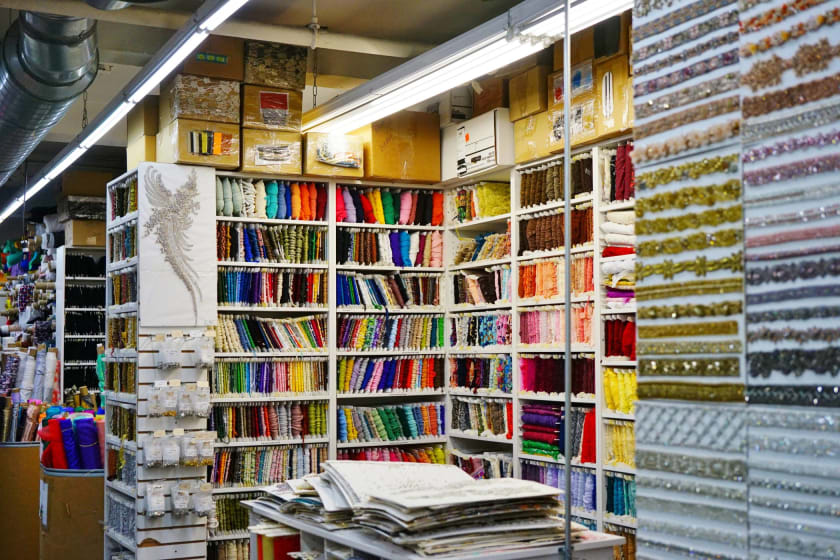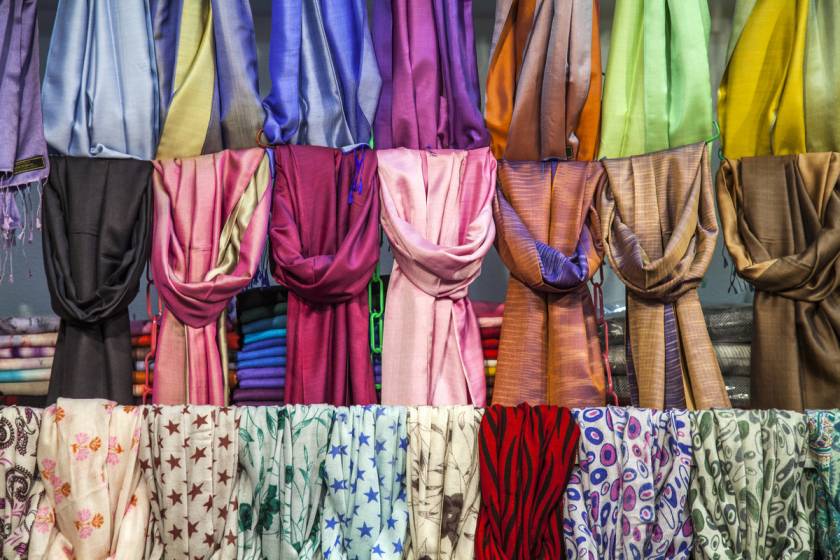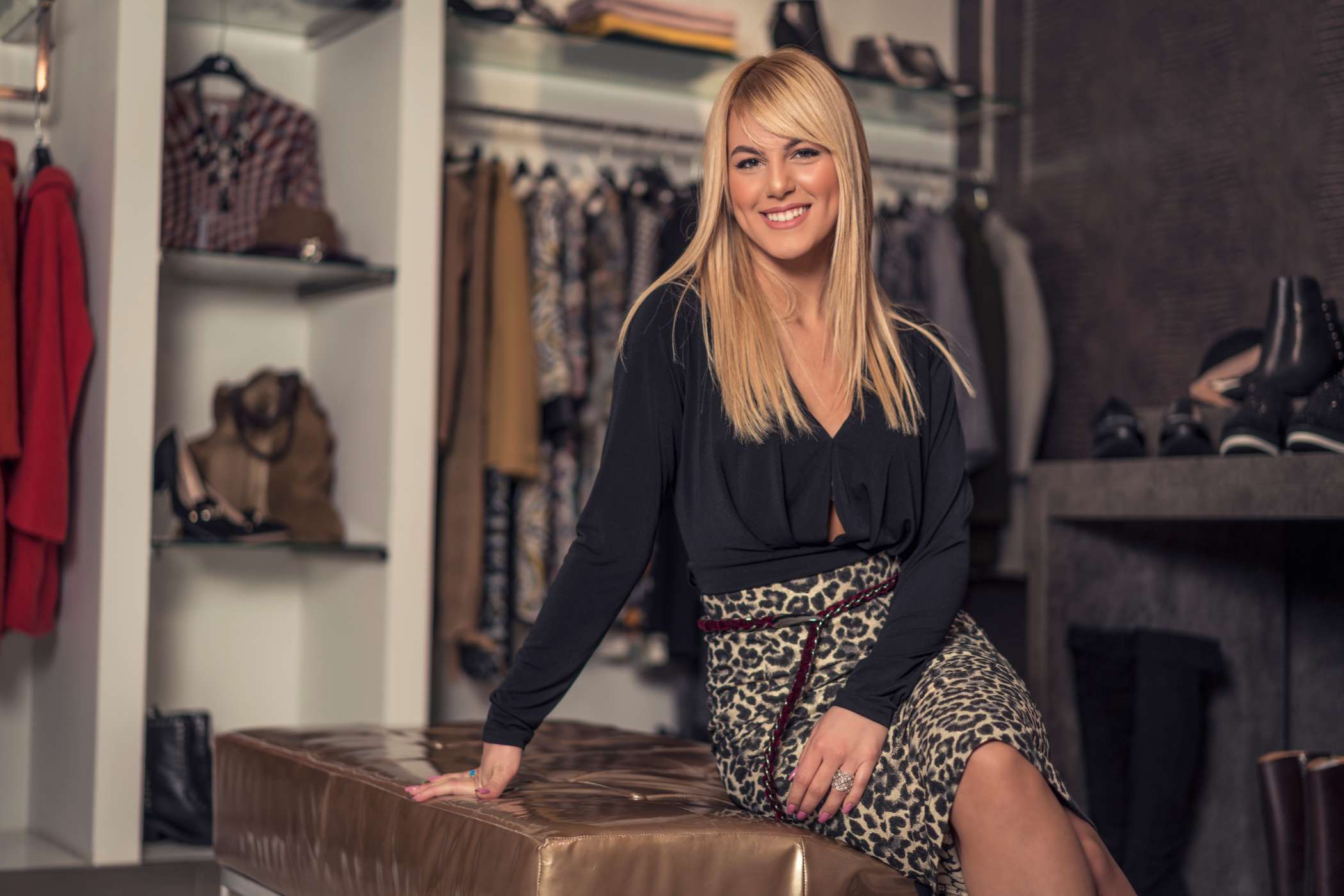What Is A Garment District? Why Does Your Clothing Brand Need To Have Access To One?



The day at a garment district starts with the noise of the machines inside a cloth factory and ends with late-night fashion talks. Every fashion brand wants to be close to the garment district because it has an abundance of resources, such as affordable labour, factories running all day, and an abundance of textile at affordable rates. This place has factories, laborers, and everything a new clothing brand requires for establishing itself in this competitive market.
What is A Garment District?
Garment District is the name given to a place in the city where all fashion-related things are concentrated. This place has everything, ranging from big fashion brands to factories and textile producers. Here, brands can also get their samples ready and tested in just a few hours, and if it doesn’t meet the requirement, they can get a new sample in no time. However, testing and making samples is an arduous task for a brand located outside the garment district.
Moreover, this place also acts as a hub for all the categories of brands, be it established brands, like Calvin Klein or a year-old startup. Everybody wants to come to a garment district, either to get resources or to get an idea of what is going on in the fashion world. Therefore, every brand wants to be closer to this place.
Why Should Brands Need To Have Access To A Garment District?
In Manhattan, New York lies the world's most prominent garment district. Estimates show that the garment district of New York alone is responsible for manufacturing approximately 70 to 95 percent of the clothes sold in the US. To understand this, let’s take the example of brands, who have worked in the garment district of New York. The importance of this garment district can be understood by the statement of the founder of Outlier, Abe Burmeister, who famously said “We’re children of the Garment District. Everything we learned about making clothes was just [through] running around the Garment District asking questions.”
The NY’s garment district has helped brands understand how to market their products well, and also helped them in getting their samples manufactured quickly. Due to its ability to help small businesses germinate, entrepreneurs like Burmeister call it the starter factory.
Get Your Samples Quickly
Burmeister also said that brands like Outlier benefitted from the garment district as they were easily provided with necessary equipment required to make clothing samples. For new brands, it is essential to get their samples ready at once. At the garment district, they can get this process done in a few hours because of the presence of a large number of textile factories.
Describing his experience at getting samples from NY’s garment district, Burmeister says, “On average it probably takes three or four hours; something complicated might take five or six hours. A lot of times, we’re building off of a sample from an existing product, so those iterations might two off the existing design.”
To understand this concept more clearly, take an example of a brand located outside the garment district. That particular brand will be required to send their samples to the experts in their respective garment district to get approval. And if the sample does not meet the requirements, it will be required to make changes, thus making the sample-making process time-consuming.
Production Never Stops
For a clothing manufacturer, who is away from the garment district, sometimes it is very difficult to produce garments in large quantities at a fast pace. The nearest factory may produce around fifty or a hundred units in an hour. But this restriction doesn’t apply to a garment district. A garment district, like NY, has factories that can produce more than 1000 units at a time.
So, if someone plans to upscale their business, they can either get closer to the garment district or they can get access to a platform where they can directly communicate with the clothing manufacturer to get things done. Moreover, sourcing online can also cut a lot of procurement costs. The textiles are also available at a nominal price, which is aided by low labor charges. This minimizes the overall production cost of the clothes.
Minimize The Inventory Risks

Any brand should never have an empty inventory as it will degrade their image in front of customers, who are taking out time to visit their stores. Tyler Rowe, the founder of Hasta Sporting, highlights why a small brand needs to be located near the garment district to minimize its inventory risk. He says, “All of our initial relationships were predicated on these smaller minimums – [but] then as a by-product, we found that we were being pushed to the side of these larger factories. Then, from that, just came a lot of missed delivery dates – and our relationships with our retailers are so important. If we can’t deliver to them when we say we’re going to deliver to them, it really puts strong external pressure on our relationships. And we had to bring it back to the States.”
This shift benefited Hasta Sportings, as they could function more efficiently, and there was a huge difference in their sales. With an abundance of resources and labor force, the garment district can meet all the demands of a clothing manufacturer and can replenish their inventory at any time.
Incubator For Brands
Many small brands find themselves in a position, where they cannot ensure quality due to lack of funds, resources, and proper guidance. However, if a brand has access to a garment district they can get skilled labor and flexible factory hours at cheaper rates. More importantly, they will also get a chance to interact with big brands in a garment district that can guide them in their journey.
Amidst these facilities, brands find it fairly easy to develop themselves even with low capital. Moreover, the atmosphere of information and the emergence of new techniques have also exponentiated the importance of a garment district.
A Hub for Talent
The presence of industry leaders makes a garment district very important in the eyes of small brands as they get to learn new things. They can then utilize this knowledge to grow their business. It is a hub of powerful fashion brands that constantly improve their products, and create new trends through innovation.
In the New York garment district, big names like Calvin Klein, Donna Karan, Liz Claiborne, Carolina Herrera, Oscar de la Renta and Nicole Miller have also made their presence known. These labels make the ecosystem ripe for a new brand to grow by inspiring them and assisting them throughout their journey. Moreover, if a person develops a good rapport with any brand, they can even get their samples tested from them.
Garment Districts Around The World

Several garment districts are located around the globe, and some of them are as follows -
Montmartre, Paris
Montmartre is a garment district in Paris which is known for its professional and wholesale bolts. It is the place where fashion brands can get their clothes manufactured at a very low price.
Nehru Place, Delhi
In Delhi, Nehru Place is known for its textile stores, and many manufacturers get their clothes from here. Moreover, there are other places like Chandni Chowk, which are popular for trims.
Downtown, Chicago
The garment district of Chicago is located near the Santa Monica Freeway in the downtown area. This place has a lot of things like fabric stores that offer good quality fabric at a nominal price, that can benefit an emerging clothing brand.
Chinatown, Boston
Boston’s garment district is located near Chinatown and is known for its collection of vintage clothes that anyone can get at a price as low as thirty dollars. Moreover, the one thing that makes it different from other garment districts is that it sells clothes using a Dollar-a-pound system, which means that the cloth is sold in weights rather than lengths to customers.
Manhattan, New York
New York has undoubtedly the oldest and the first garment district in the world and is located in the borough of Manhattan. This place is the birthplace of many big fashion brands and has actively contributed to the changing fashion world. One can always find its streets filled with fashion enthusiasts, who come to this part of the town to visit the showrooms of various brands. This garment district of Manhattan is so big that one needs to take a tour guide to explore all parts of it.
There is no doubt that a garment district plays a crucial role in nurturing a business. Therefore, a fashion brand needs to be as close as it can to the nearest garment district. However, if a brand is not located near any garment factory and is having a really hard time sourcing the clothes, they can contact Fashinza. Fashinza overlooks the entire production process, from design to delivery. Their chief offering is a platform where brands can place an order, track it, receive daily production updates, communicate with manufacturers, and make payments.



















